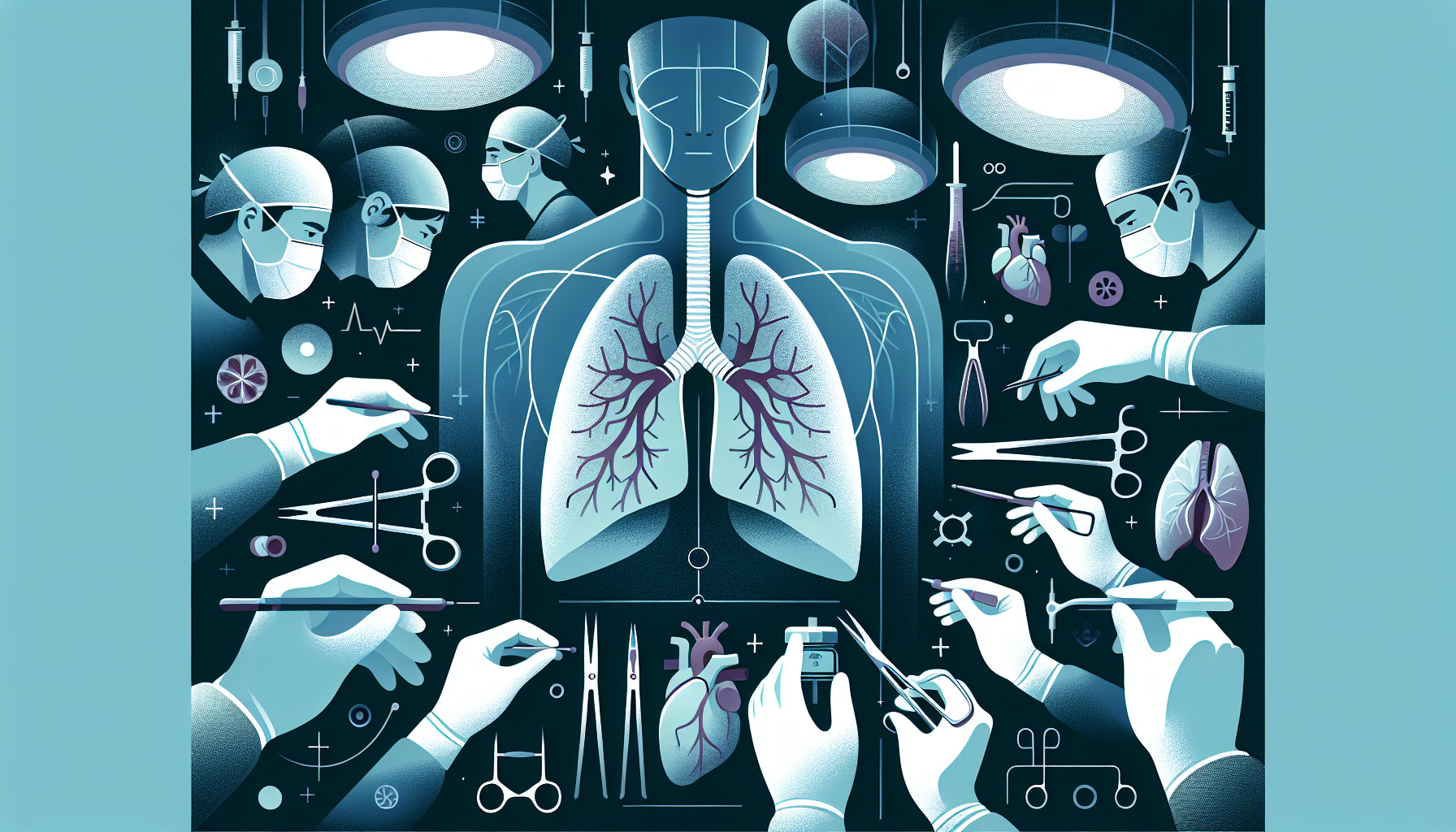Our Summary
This research paper discusses the procedure of lung transplants, a treatment for patients who have severe lung disease. There has been a rise in the demand for this type of treatment. Despite advances in evaluating patients before the transplant, performing the surgery, and caring for patients after the surgery, the average life expectancy after a lung transplant is about 6.5 years. Recognizing problems early through imaging techniques and providing treatment can improve the chances of survival. It’s crucial to understand the surgical methods and the imaging results of complications that might occur after the surgery, including issues with the transplanted lung, infections, tumors, and the return of the original lung disease.
FAQs
- What is the average life expectancy after a lung transplant?
- What are some potential complications after a lung transplant?
- How can early recognition of complications improve survival rates after a lung transplant?
Doctor’s Tip
One helpful tip a doctor might tell a patient about lung transplant is to diligently follow all postoperative care instructions provided by the transplant team. This includes taking prescribed medications, attending follow-up appointments, and maintaining a healthy lifestyle to reduce the risk of complications and improve long-term outcomes. It is important to report any symptoms or changes in health to the transplant team promptly. Regular monitoring and early intervention can help optimize the success of the transplant.
Suitable For
Patients who are typically recommended for lung transplant include those with end-stage lung diseases such as chronic obstructive pulmonary disease (COPD), idiopathic pulmonary fibrosis, cystic fibrosis, pulmonary hypertension, and bronchiectasis. These patients must have exhausted all other treatment options and have a life expectancy of less than 2-3 years without a transplant. Additionally, they must be medically stable enough to undergo surgery and able to comply with post-transplant care and medications. Patients with certain comorbidities such as severe heart disease, active infections, or malignancies may not be considered suitable candidates for lung transplant.
Timeline
Before lung transplant:
- Patient is diagnosed with end-stage lung disease and referred for evaluation for transplant
- Patient undergoes extensive evaluation including medical history, physical exams, imaging studies, and laboratory tests
- Patient is placed on a waiting list for a suitable donor
- Patient may experience worsening symptoms and complications of their lung disease while waiting for transplant
After lung transplant:
- Patient undergoes surgery to receive donor lungs
- Patient is closely monitored in the hospital for complications such as rejection, infection, and organ failure
- Patient undergoes rehabilitation and physical therapy to regain strength and function
- Patient requires lifelong medication to prevent rejection and manage complications
- Patient undergoes regular follow-up visits with transplant team for monitoring and management of complications
- Patient may experience improvements in lung function and quality of life, but may also experience complications such as chronic rejection, infections, and neoplasms
- Patient may require additional treatments or a second transplant if complications arise.
What to Ask Your Doctor
- What is the success rate of lung transplants at this facility?
- What are the potential risks and complications associated with a lung transplant?
- How long is the recovery process after a lung transplant?
- What medications will I need to take after the transplant and what are the potential side effects?
- How often will I need to have follow-up appointments and tests after the transplant?
- How can I reduce the risk of complications and rejection of the donor lung?
- What signs or symptoms should I watch for that may indicate a problem with the transplanted lung?
- How long can I expect the transplanted lung to function effectively?
- Are there any lifestyle changes I will need to make after the transplant?
- Are there any alternative treatments to a lung transplant that I should consider?
Reference
Authors: Kang J, Digumarthy SR. Journal: Radiol Clin North Am. 2023 Sep;61(5):833-846. doi: 10.1016/j.rcl.2023.04.006. Epub 2023 May 16. PMID: 37495291
